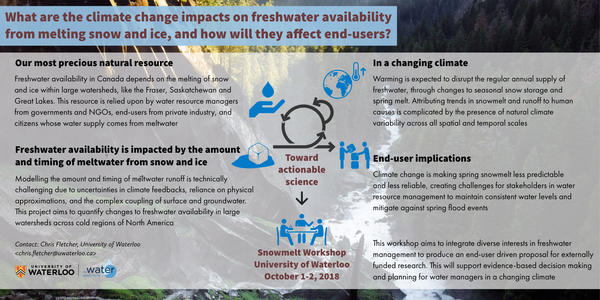The Waterloo Snowmelt Workshop 2018 was held on October 1-2 in the GreenHouse social impact incubator at St. Paul's University College, funded by a Water Institute Seed Grant to principal investigators Chris Fletcher, John Johnston, and Edward Sudicky. The workshop brought together academics, government officials, industry professional and public-sector employees.
Participants
Participants comprised of researchers from multiple Canadian universities, including the University of Waterloo, along with representatives from all levels of government, private industry, and NGOs from across Canada. Colleagues from Natural Resources Canada, the Government of Manitoba, and NASA Goddard Space Flight Center also joined the workshop through our online web link.
Day 1 highlights
The first day of the workshop featured a series of keynote presentations from scientists and end-users. Scientific speakers identified the current state of knowledge on climate change impacts on terrestrial snow, and the challenges and capabilities of hydrologic modelling of snowmelt runoff. The following talks focused on end-user challenges in Western Canada, the Prairies, and the Great Lakes.
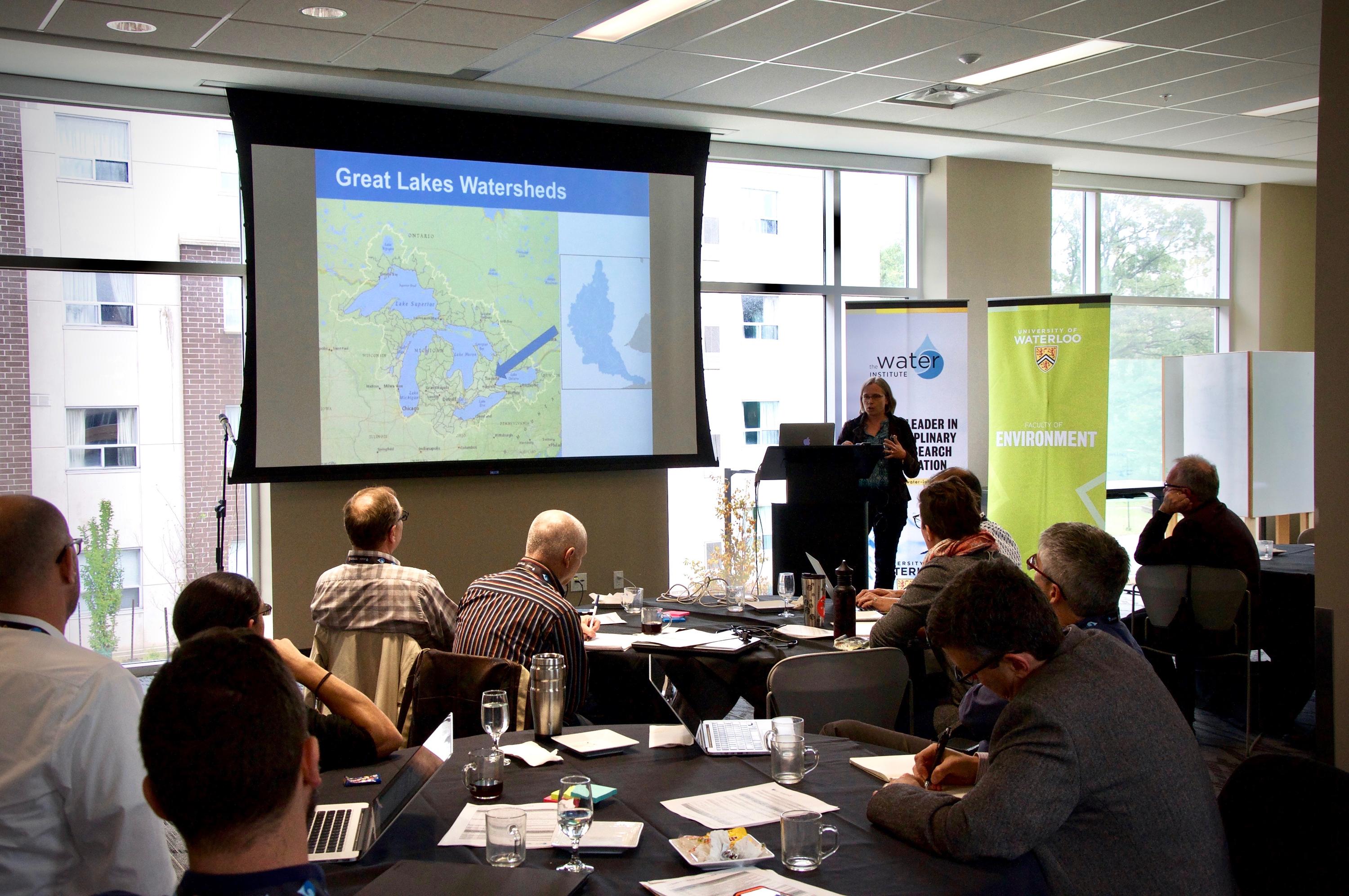
Day 1 also featured a Galley Walk focused on five key areas:
-
What factors are limiting and/or preventing interaction between scientists and end-users?
-
Do you or your organization have examples of positive experience of science and end-user interaction or collaboration?
-
What factors are limiting and/or preventing your work on snowmelt and climate change?
-
Describe any challenges (scientific, political and/or commercial) that climate change poses to freshwater availability in Canada from melting snow and ice.
-
What factors are driving you and/or your organization to seek answers to how climate change will affect snowmelt runoff?
Gallery Walk findings
Responses to the key questions reflected the range of expertise of the participants while also highlighting some common key areas. Commitment to success and an early refinement of scientific problems, for instance, were pinpointed as central to diminishing disconnect between researchers and end-users.
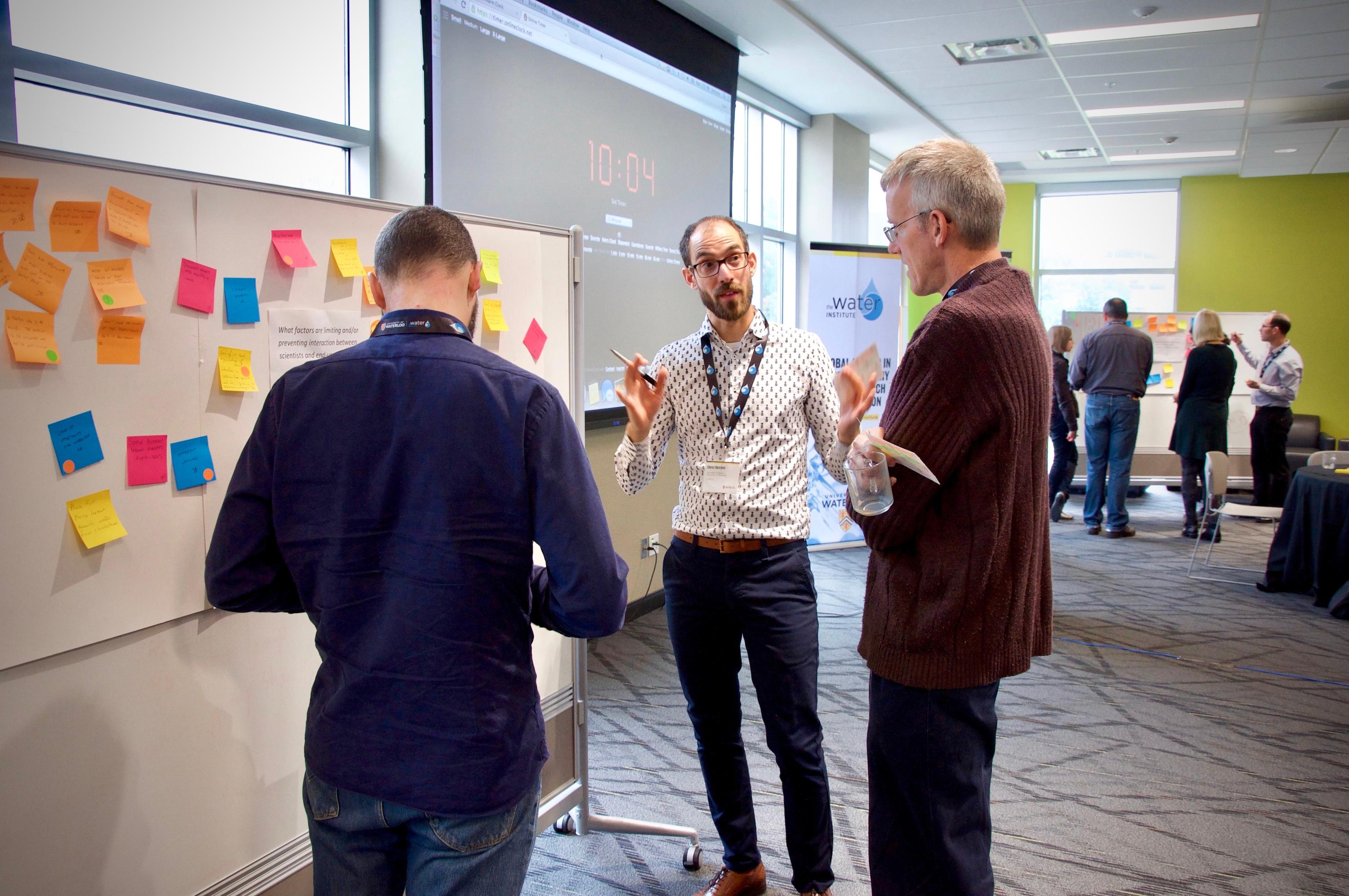
Water Institute member Chris Fletcher speaking to stakeholders.
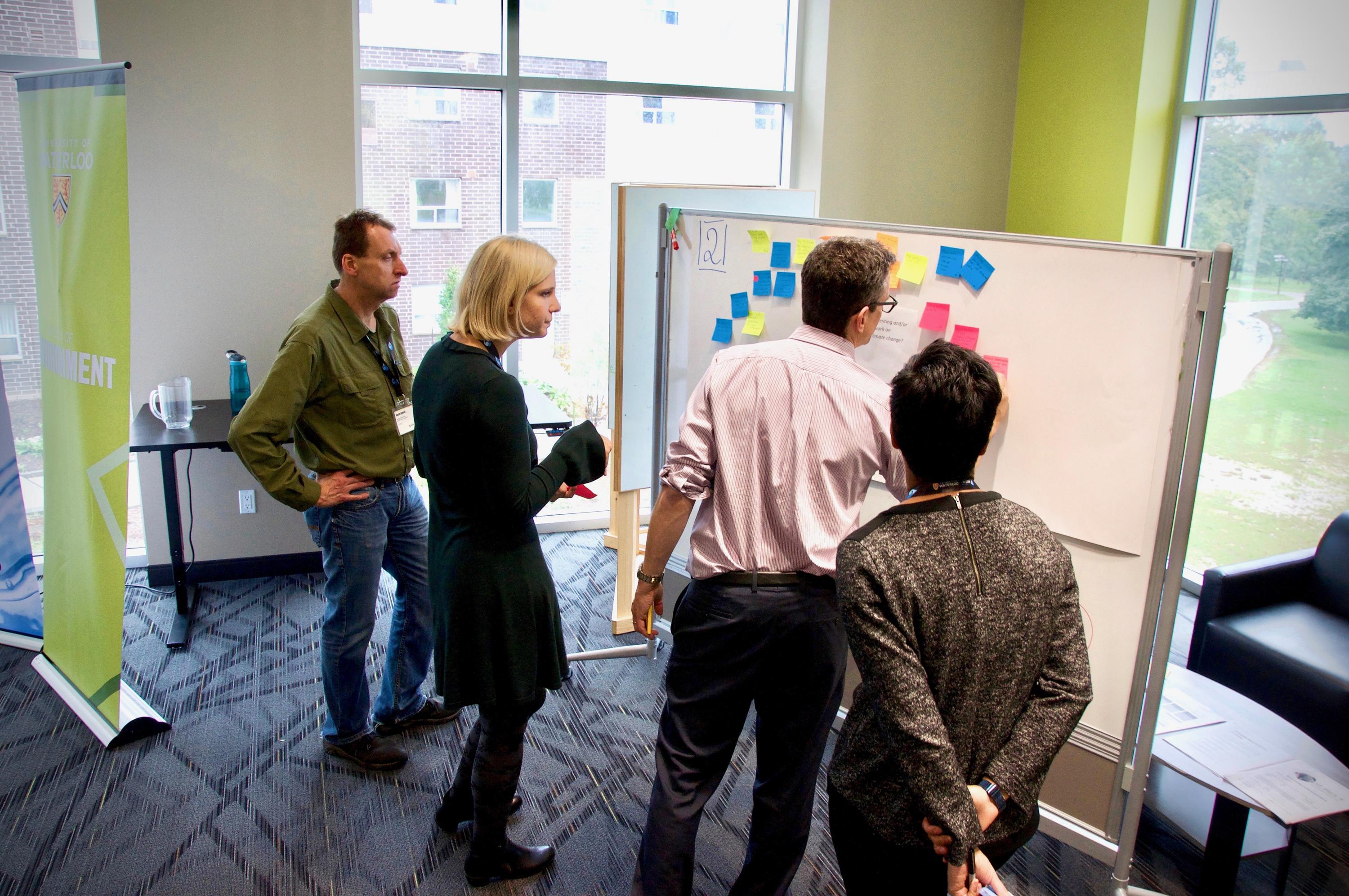
The
resounding
response
to
whether
participants
have
experienced
positive
researcher
and
end-user
collaboration
was "Yes!"
Several
best
practices
were
advised,
such
as
leveraging
existing
professional
groups
and
associations
to
connect
researchers
and
end-users,
outreach
that
involves
scientists,
and
utilizing
maps
and
monetization.
Participants
identified
lack
of
resources
from
funding
and
investment
landscapes,
the
quality
and
availability
of
data,
the
ability
to
access
best
available
information
and
expertise
(on
both
sides),
and
the
uncertainties
of
hydrologic
modelling
as
science
obstacles.
Main
scientific
drivers,
processes,
impacts
and
responses
included
hydrological
processes
and
the
climate
interface,
shifting
seasons, rapid
melts
and
refreezes,
groundwater
recharge
rates,
and
base-flow
depletion
in
smaller
watersheds.
Day 2 highlights
The second day of the workshop featured interactive discussions in small groups. The groups synthesized information from the Gallery Walk posters into main discussion points and research themes. Each team then presented their findings back to the larger group before coming together for a final brainstorming session and strategic planning discussion in preparation for the post-workshop phase.
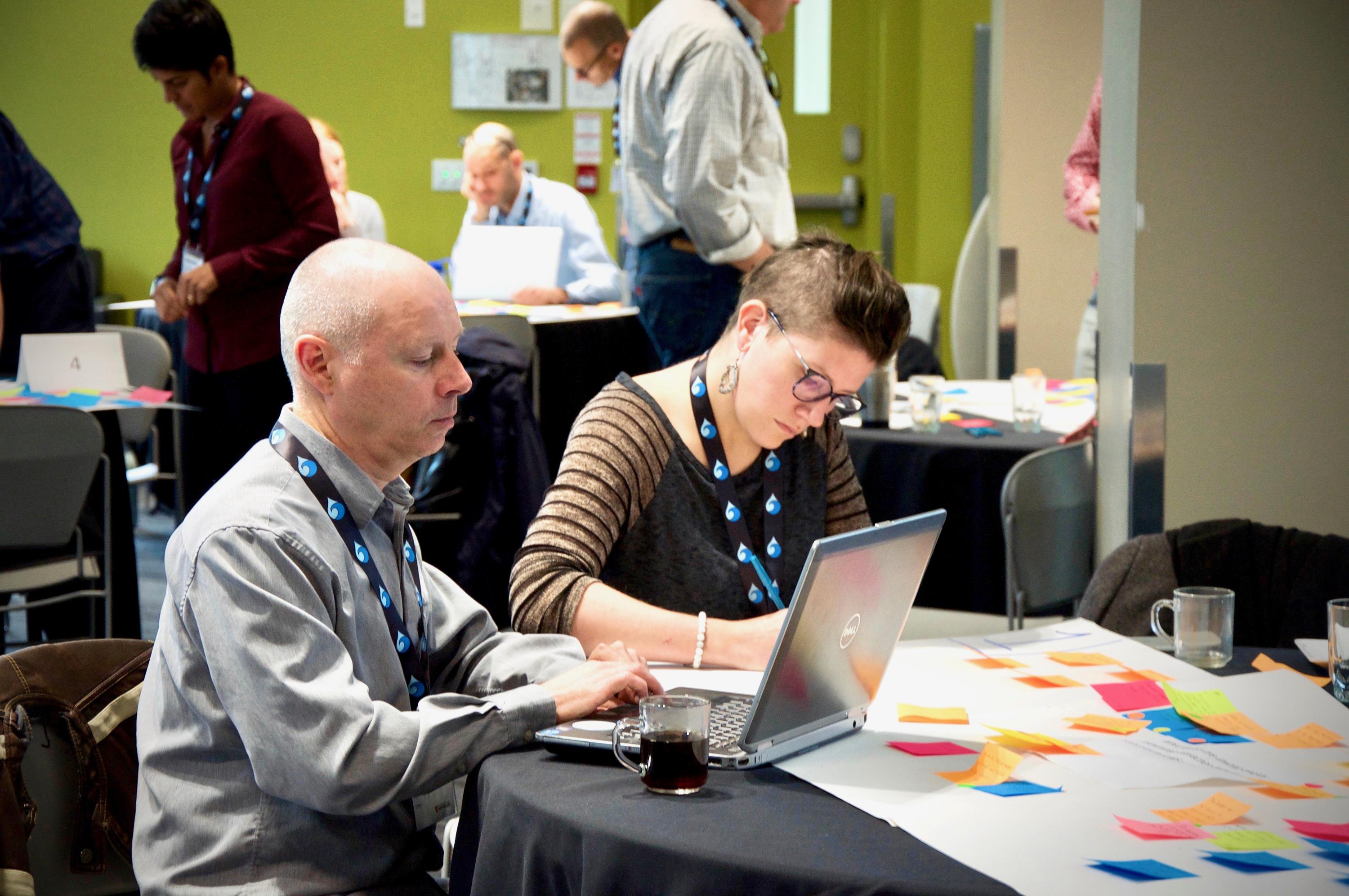
Stakeholders work together to discuss research themes presented on Day 1.
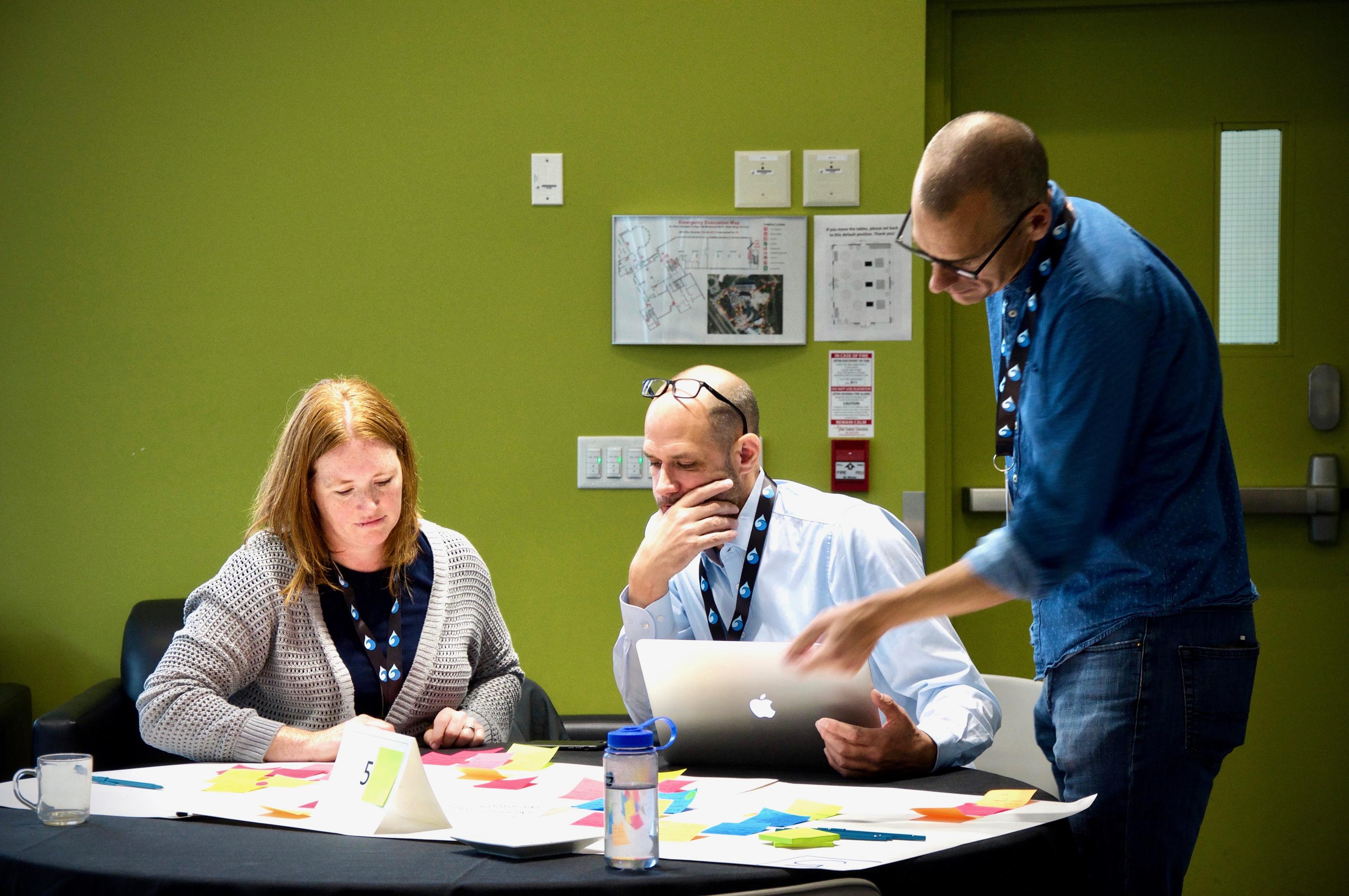
Principal motivators and applications were identified in the presentations as being human vulnerability (social, economic and environmental), short-term water management (seasonal to annual), long-term water management (30-50 years), and other external factors (i.e. market drivers, human capacity development, and shifting industry and stakeholder needs) relevant to freshwater availability from melting snow and ice.
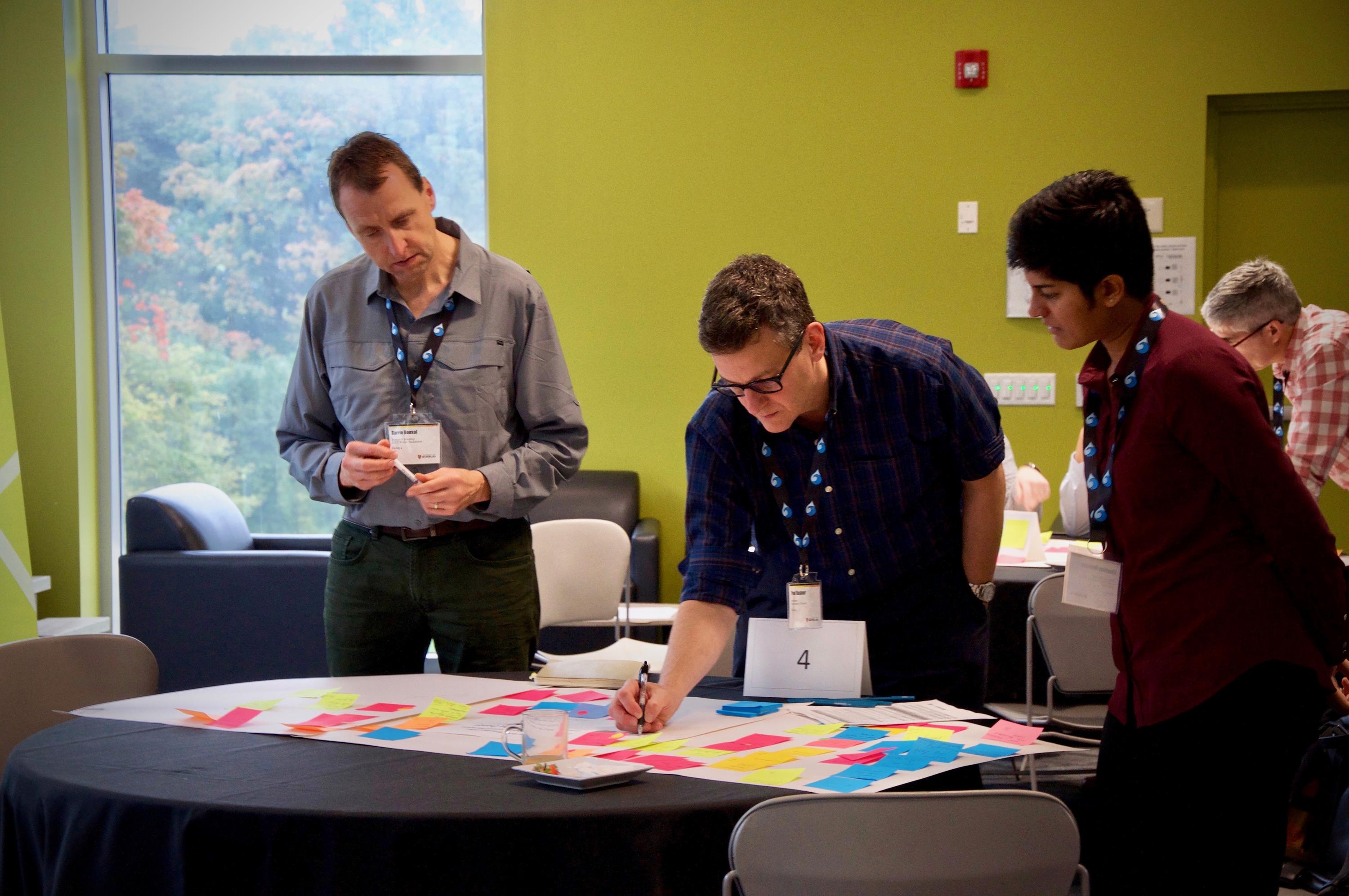
Using high-level questions identified in the Gallery Walk - such as the complexity of physical processes and the economic value of pro-active risk management - workshop participants began a process of connecting research interests and skills within the group, with the long-term goal of developing a collaborative research proposal for funding.
